Navigating the Complexity of Dual Diagnosis

What is Bipolar Disorder with ADHD?
Bipolar Disorder and Attention Deficit Hyperactivity Disorder (ADHD) are two distinct neurodevelopmental conditions that can co-occur in some individuals. Recent research suggests that up to 20% of individuals with bipolar disorder also meet criteria for ADHD, and vice versa. When someone has both bipolar disorder and ADHD, it creates a unique neurological profile that we’ll refer to as bipolar-ADHD.
The Diagnostic Evolution of Bipolar-ADHD
Historically, bipolar disorder and ADHD were often viewed as mutually exclusive conditions. The DSM-IV did not allow for co-diagnosis, leading to potential misdiagnosis or incomplete treatment for individuals experiencing symptoms of both disorders. With the release of the DSM-5 in 2013, clinicians can now diagnose both conditions concurrently, reflecting a more nuanced understanding of neurodevelopmental diversity.
This change in diagnostic criteria has significant implications for research and treatment. Studies conducted before 2013 may have inadvertently excluded individuals with both conditions, potentially skewing our understanding of each disorder in isolation. It also means that many adults diagnosed before 2013 may benefit from reassessment to ensure they’re receiving comprehensive care for all their symptoms.
The Neurological Complexity of Bipolar-ADHD
Brain imaging studies have revealed that both bipolar disorder and ADHD involve alterations in prefrontal cortex functioning and neurotransmitter systems, particularly dopamine and norepinephrine. However, the specific patterns of these alterations can differ between the two conditions. In bipolar-ADHD, these neurological differences interact in complex ways, creating a unique cognitive and emotional landscape.
For example, the dysregulation of the reward system seen in ADHD may interact with the mood instability characteristic of bipolar disorder, leading to more severe impulsivity during manic episodes. Conversely, the attentional deficits in ADHD might exacerbate the cognitive difficulties often experienced during bipolar depressive episodes.
The Push-Pull of Opposing Traits
Living with bipolar-ADHD often feels like an internal tug-of-war between competing neurological needs and tendencies:
- Bipolar disorder involves episodic mood changes, while ADHD symptoms are more persistent
- ADHD may drive a need for constant stimulation, while bipolar disorder can lead to periods of extreme withdrawal during depressive episodes
- The hyper-focus sometimes seen in ADHD can be amplified during manic or hypomanic states
- Impulsivity from ADHD may be further intensified during manic episodes
These contradictory traits can result in:
- Difficulty maintaining consistent performance at work or school
- Challenges in interpersonal relationships due to mood swings and attentional issues
- Increased risk of substance abuse as a form of self-medication
- Struggles with self-esteem due to the unpredictable nature of symptoms
Gender Differences in Presentation
Bipolar-ADHD can manifest differently across genders, adding another layer of complexity to diagnosis and treatment:
- Women with bipolar-ADHD may experience more depressive episodes and inattentive ADHD symptoms, which can be mistaken for unipolar depression
- Men might display more manic episodes and hyperactive-impulsive ADHD traits, potentially leading to misdiagnosis as a personality disorder
- Hormonal fluctuations in women can influence both bipolar and ADHD symptoms, complicating symptom tracking and treatment
These gender differences contribute to the underdiagnosis of bipolar-ADHD, particularly in women and individuals who don’t fit the stereotypical presentation of either disorder.
Rethinking Treatment for Bipolar-ADHD
Managing bipolar-ADHD requires a nuanced, personalized approach that addresses the unique symptom profile of each individual:
- Medication management is complex, often involving a combination of mood stabilizers and stimulants. Close monitoring is crucial to avoid triggering manic episodes with ADHD medications
- Cognitive Behavioral Therapy (CBT) can be adapted to address both bipolar and ADHD symptoms, focusing on mood regulation, organizational skills, and impulse control
- Mindfulness-based interventions may help individuals develop greater awareness of their mood states and attentional patterns
- Psychoeducation is essential, helping individuals and their support systems understand the interplay between bipolar and ADHD symptoms
Emerging treatments like neurofeedback and transcranial magnetic stimulation (TMS) show promise in addressing the neurological underpinnings of bipolar-ADHD. These approaches aim to directly modulate brain activity to improve mood stability and attentional control.
The Strengths of a Bipolar-ADHD Mind
While the challenges of bipolar-ADHD are significant, this neurological combination can also confer unique strengths:
- Intense creativity and innovative thinking, particularly during hypomanic states
- Ability to make quick decisions and think on one’s feet
- Heightened empathy and emotional sensitivity, allowing for deep connections with others
- Capacity for hyper-focus on engaging tasks, leading to periods of exceptional productivity
- Resilience developed from navigating the complexities of both conditions
When properly managed, these strengths can lead to success in fields that value creativity, problem-solving, and emotional intelligence.
Embracing the Bipolar-ADHD Experience
Understanding bipolar-ADHD as a distinct neurotype is crucial for proper support and self-acceptance. It requires moving beyond viewing these conditions as separate entities and instead appreciating the unique ways they interact and shape an individual’s experiences.
For those living with bipolar-ADHD, developing a deep understanding of their personal symptom patterns is key. This might involve:
- Mood and attention tracking to identify triggers and cycles
- Building a strong support network educated about both conditions
- Advocating for accommodations in work and educational settings
- Connecting with others who share similar experiences through support groups or online communities
With the right combination of professional support, self-management strategies, and self-compassion, individuals with bipolar-ADHD can lead fulfilling lives that honor the complexity of their neurological makeup.
If you resonate with the descriptions in this article, consider seeking an assessment from a mental health professional experienced in both bipolar disorder and ADHD. Remember that your experiences are valid, and support is available to help you navigate this complex and unique neurotype.
Resources to ADHD Comorbid with Other Disorders
Taproot Therapy Collective (Birmingham, AL)
- Treatments: Brainspotting, EMDR, Somatic Experiencing, Lifespan Integration, Parts-Based Therapy, Trauma Mapping.
- Specialties: Specializes in trauma therapy, PTSD, anxiety, panic, and dissociative disorders. Their therapists use integrative methods to help clients heal from trauma at a deep, somatic level.
- Website: gettherapybirmingham.com
1. Crisis Center Birmingham (24/7 Crisis Line)
- Phone: (205) 323-7777
Provides immediate support for individuals in emotional distress, including suicide prevention, trauma, and mental health crises. - Website: crisiscenterbham.org
2. Rape Response Line (Crisis Center Birmingham)
- Phone: (205) 323-7273
Dedicated to providing support for survivors of sexual assault, available 24/7. - Website: crisiscenterbham.org/rape-response
3. Teen Link (Crisis Center Birmingham)
- Phone: (205) 328-5465
Teen-specific support line for youth in emotional or mental distress. - Website: crisiscenterbham.org
4. National Suicide Prevention Lifeline (Serving Alabama)
- Phone: 988
A national 24/7 suicide prevention hotline accessible to individuals in Birmingham and the rest of Alabama. - Website: 988lifeline.org
5. UAB Psychiatry Emergency Services
- Phone: (205) 934-7008
Provides immediate psychiatric evaluation and crisis intervention at the University of Alabama at Birmingham Hospital. - Website: uabmedicine.org
6. Alabama Domestic Violence Hotline
- Phone: 1-800-650-6522
24/7 support for individuals experiencing domestic violence, available statewide, including Birmingham. - Website: acadv.org
7. Birmingham AIDS Outreach Crisis Line
- Phone: (205) 322-4197
Provides crisis support for individuals affected by HIV/AIDS, including mental health services and support for LGBTQ+ communities. - Website: birminghamaidsoutreach.org
8. Alabama 2-1-1 Call Center
- Phone: 2-1-1
A statewide information and referral line connecting individuals to crisis support services for housing, food, mental health, and substance abuse issues. - Website: 211connectsalabama.org
9. Jefferson County Family Resource Center Crisis Line
- Phone: (205) 945-6000
Provides crisis intervention, including family support, domestic violence resources, and mental health services. - Website: jcfrc.org
10. Veterans Crisis Line (Serving Birmingham)
- Phone: 988 (Press 1)
A specialized crisis line for veterans experiencing emotional distress, available nationwide and locally. - Website: veteranscrisisline.net
- Phone: (205) 323-7777
LGBTQ+ and Poly-Friendly Support
Magic City Acceptance Center (MCAC)
LGBTQ+ youth programs, adult support groups, and community events in Birmingham.
Website: mcacbham.org
Birmingham LGBTQ+ Circle of Healing
Support groups for LGBTQ+ individuals focusing on mental health and holistic wellness.
Contact through Magic City Acceptance Center.
Inclusive Therapists
Directory of therapists in Birmingham and Hoover specializing in LGBTQ+ and poly-friendly care.
Website: inclusivetherapists.com
PFLAG Birmingham
LGBTQ+ support groups for families and friends of LGBTQ+ individuals, offering mental health and advocacy resources.
Website: pflaga.org/birmingham
Steel City Spectrum
Provides support and resources for the transgender and gender-nonconforming communities in Birmingham.
Website: steelcityspectrum.org
Free & Low-Cost Therapy and Counseling
Impact Family Counseling (Birmingham, AL)
Provides sliding-scale counseling services for trauma, anxiety, depression, and family therapy.
Website: impactal.org
Firehouse Shelter (Birmingham, AL)
Offers mental health services and crisis support for homeless individuals in the Birmingham area.
Website: firehouseshelter.com
Pathways Birmingham
Women’s shelter offering mental health and trauma support for homeless women and children.
Website: pathwayshome.org
United Way of Central Alabama
Offers access to free or low-cost mental health counseling and crisis intervention through partnerships.
Website: uwca.org
BridgeWays Alabama
Offers family and youth counseling, including trauma recovery, on a sliding fee scale.
Website: bridgewaysalabama.org
Holistic & Alternative Therapy Centers
Taproot Therapy Collective (Birmingham, AL)
Offers holistic mental health services like Brainspotting, EMDR, and somatic trauma therapies.
Website: gettherapybirmingham.com
Birmingham Wellness Institute
Focuses on alternative healing practices such as yoga therapy, mindfulness, and EMDR.
Website: bhamwellness.com
Sojourn Counseling (Hoover, AL)
Provides integrative counseling with a focus on EMDR, trauma work, and mindfulness.
Website: sojourncounseling.com
Red Mountain Therapeutics (Birmingham, AL)
Offers somatic therapies, acupuncture, and integrative emotional healing for trauma recovery.
Website: redmountaintherapeutics.com
Shanti Healing Arts Center (Birmingham, AL)
Focuses on trauma-sensitive yoga, meditation, and holistic therapies for emotional and mental health.
Website: shantihealingarts.com
Lifespan Integration & Trauma Mapping
Birmingham Counseling Associates
Provides Lifespan Integration therapy for complex trauma and PTSD.
Website: bhamcounseling.com
Lifeline Counseling (Hoover, AL)
Trauma-informed care specializing in Lifespan Integration and Somatic Trauma Mapping.
Website: lifelinehoover.com
River Oaks Counseling
Offers Lifespan Integration and other trauma-focused therapies for PTSD and dissociation.
Website: riveroakscounseling.com
Emotional Wellness Counseling
Provides Lifespan Integration therapy and somatic trauma work.
Website: emotionalwellnesshoover.com
qEEG Brainmapping and Neurofeedback Resources
Focus-MD Birmingham
Specializes in ADHD treatment and qEEG brain mapping for neurodevelopmental disorders.
Website: focus-md.com
Birmingham Neurofeedback Clinic
Provides qEEG brain mapping and neurofeedback for trauma, anxiety, and ADHD.
Website: birminghamneurofeedback.com
Alabama Neurofeedback
Offers qEEG brain mapping and neurofeedback to improve brain function and emotional regulation.
Website: alneurofeedback.com
Covenant Neuropsychology
qEEG brain mapping services for trauma-related symptoms and neurological issues.
Website: covenantneuro.com
Psych Wellness South (Hoover, AL)
qEEG and neurofeedback services to treat anxiety, ADHD, and trauma.
Website: psychwellnesssouth.com
Poly-Friendly & Non-Monogamy Support
Inclusive Therapists
Directory for poly-friendly and non-monogamy affirming therapists in the Birmingham and Hoover areas.
Website: inclusivetherapists.com
Birmingham LGBTQ Circle of Healing
Offers support for polyamorous and non-monogamous relationships.
Contact through Magic City Acceptance Center.
Alabama Polyamory Network
A supportive community providing mental health resources for polyamorous individuals.
Contact via Meetup: meetup.com/polybirmingham
New Hope Counseling
Poly-friendly therapy services, offering support for non-traditional relationships.
Website: newhopecounselingbham.com
Open Counseling Birmingham
Provides mental health counseling for those in polyamorous or open relationships.
Website: opencounseling.com
Youth & Family Services
Oasis Counseling for Women and Children
Provides trauma therapy, parenting support, and family counseling.
Website: oasiscounseling.org
Children’s Aid Society of Alabama (Birmingham)
Family and individual counseling, including trauma services for children.
Website: childrensaid.org
Aletheia House
Mental health and substance abuse services for families, including trauma recovery programs.
Website: aletheiahouse.org
Big Brothers Big Sisters of Greater Birmingham
Offers mentorship and emotional support for at-risk youth.
Website: bbbsbhm.org
The Exceptional Foundation
Provides support for children and adults with special needs, including mental health resources.
Website: exceptionalfoundation.org



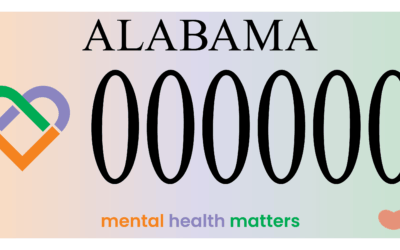
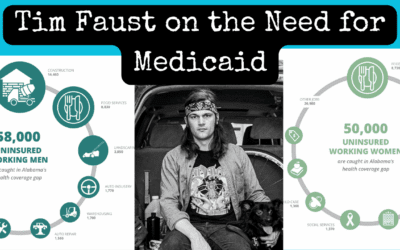

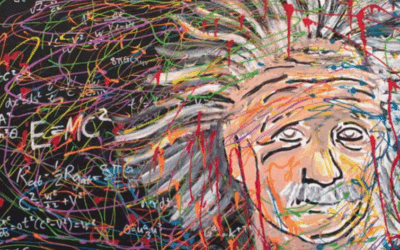

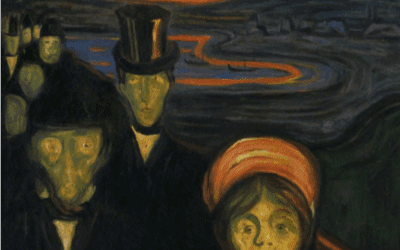


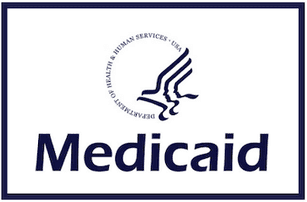


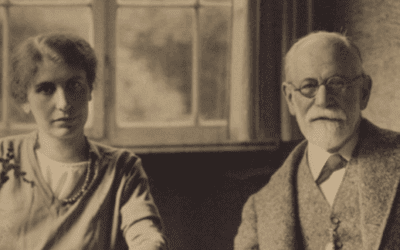
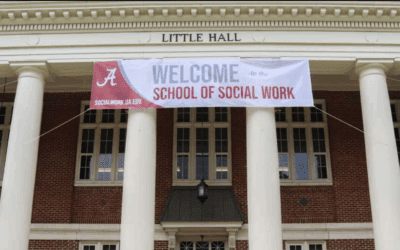




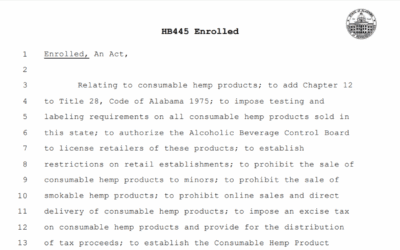
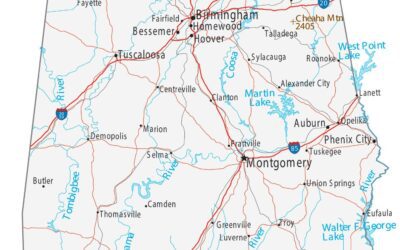
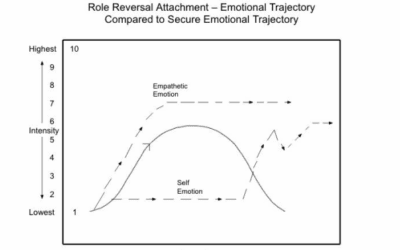


0 Comments